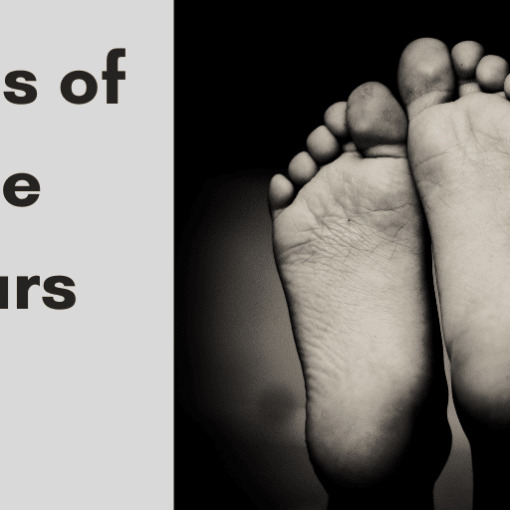We all have a cocoon around us that may keep us safe, too safe, but there is a time for leaving the old and entering the new. Sometimes we have to walk through the crowd to get there.
Something new was happening in them. They were changing, leaving. There was a spark in their eyes, and people were starting to notice, comment, and ask questions. They were leaving a tired old cocoon.
It had been a safe place, but now it was getting too cramped and tight for all the work they had been doing on the inside. It had been mostly hidden work, and only a few knew the struggles and suffering they had been through, but now it was time to evolve.
When the memories joined up, and the story gained clarity, things began to make sense. When she was offered new truth and insights, further sense was made about who she truly was. Lightbulb thinking moments began to spark, then whole street rows of lights glowed, and a new path was shown.
Massive learnings were beginning to take place.
What she had believed about herself once was now being turned upside down. She was starting to see her life the right side up.
Upon leaving the cocoon
I’ve noticed that often when people have this sense of emergence, there are several responses.
- Wonderment and joy. Everything seems fresh, alive, and full of adventurous invitation. There is a whole new world to explore.
- Anger and Grief. There can be grief and anger at being kept in the old prison for so long.
- Celebration from others. People notice and rejoice in the change.
- Ambivalence from others. They don’t notice. They are so trapped in their small world contexts that they are blind to see the beauty coming forward.
- Rejection from others. Some will question it, challenge it, and possibly reject it. It makes them uncomfortable to see ripples of newness.
Walkthrough the crowd
In an interesting little story of Jesus, we see him breaking out of the cocoon of others’ expectations. Their response was a desire to kill the butterfly.
He had just announced to his township who he was, and they didn’t take kindly to his divinity.
They got up, drove him out of the town, and led him to the brow of the hill on which their town was built, so that they might hurl him off the cliff. But he passed through the midst of them and went on his way. Luke 4:29-30
At times you have to leave the town behind because the town will keep you in the mindset of a town.
The next time he came home, the town still kept him in the framework of the past.
He came to his hometown and began to teach the people in their synagogue, so that they were astounded and said,
“Where did this man get this wisdom and these deeds of power? Is not this the carpenter’s son? Is not his mother called Mary? And are not his brothers James and Joseph and Simon and Judas? And are not all his sisters with us? Where then did this man get all this?” And they took offense at him.
But Jesus said to them, “Prophets are not without honor except in their own country and in their own house.”
And he did not do many deeds of power there, because of their unbelief. Matthew 13:54-58
Your framework
The town saw him as the carpenter’s son, mother – Mary, brothers, sisters.
That was the identity for which they could place him in. The markers of identity were true, but he had left the cocoon of their context.
They were trying to fit the box of their context around the Son of God. Impossible.
No miracles happened there, nothing of life-changing power for them. Jesus moved on through the crowd yet again. Leaving them behind in their own cocoon.
What’s your cocoon?
What are the walls you are pressing up against that need to broken apart? Are there some beliefs about yourself that you need to tear away? Are you allowing others to define your town?
There is a beauty and purpose that may well be waiting for expression.
Let it come in its own time and walk through the crowd because, as Mother Teresa says, ‘it is between you and God. It was never between you and them anyway.’
Quotes to consider
- And the day came when the risk to remain tight in a bud was more painful than the risk it took to blossom.
Life is a process of becoming, a combination of states we have to go through. Where people fail is that they wish to elect a state and remain in it. This is a kind of death.
Living never wore one out so much as the effort not to live.
Life is truly known only to those who suffer, lose, endure adversity and stumble from defeat to defeat.
Perfection is static, and I am in full progress.
Abnormal pleasures kill the taste for normal ones.
Anaïs Nin -
People are often unreasonable, irrational, and self-centered.
Forgive them anyway.
If you are kind, people may accuse you of selfish, ulterior motives.
Be kind anyway.
If you are successful, you will win some unfaithful friends and some genuine enemies.
Succeed anyway.
If you are honest and sincere people may deceive you.
Be honest and sincere anyway.
What you spend years creating, others could destroy overnight.
Create anyway.
If you find serenity and happiness, some may be jealous.
Be happy anyway.
The good you do today, will often be forgotten.
Do good anyway.
Give the best you have, and it will never be enough.
Give your best anyway.
In the final analysis, it is between you and God.
It was never between you and them anyway.
Mother Teresa - All changes, even the most longed for, have their melancholy, for what we leave behind us is a part of ourselves; we must die to one life before we can enter into another. Anatole France
- The word change normally refers to new beginnings. But transformation more often happens not when something new begins but when something old falls apart. The pain of something old falling apart—disruption and chaos—invites the soul to listen at a deeper level. It invites and sometimes forces the soul to go to a new place because the old place is not working anymore. Richard Rohr When Things Fall Apart
- Change can either help people to find a new meaning, or it can cause people to close down and turn bitter. The difference is determined by the quality of our inner life, or what we call “spirituality.” Change of itself just happens; spiritual transformation is an active process of letting go, living in the confusing dark space for a while, and allowing yourself to be spit up on a new and unexpected shore. You can see why Jonah, in the belly of the whale is such an important symbol for many Jews and Christians. Richard Rohr When Things Fall Apart
Questions to answer
- What frameworks do you and others keep yourself in?
- Have you had any experience of leaving a ‘cocoon’? What was it like? How did others respond?
- What is the cocoon you need to begin to let go of?
Further Reading
Image cc: Suzanne D. Williams





